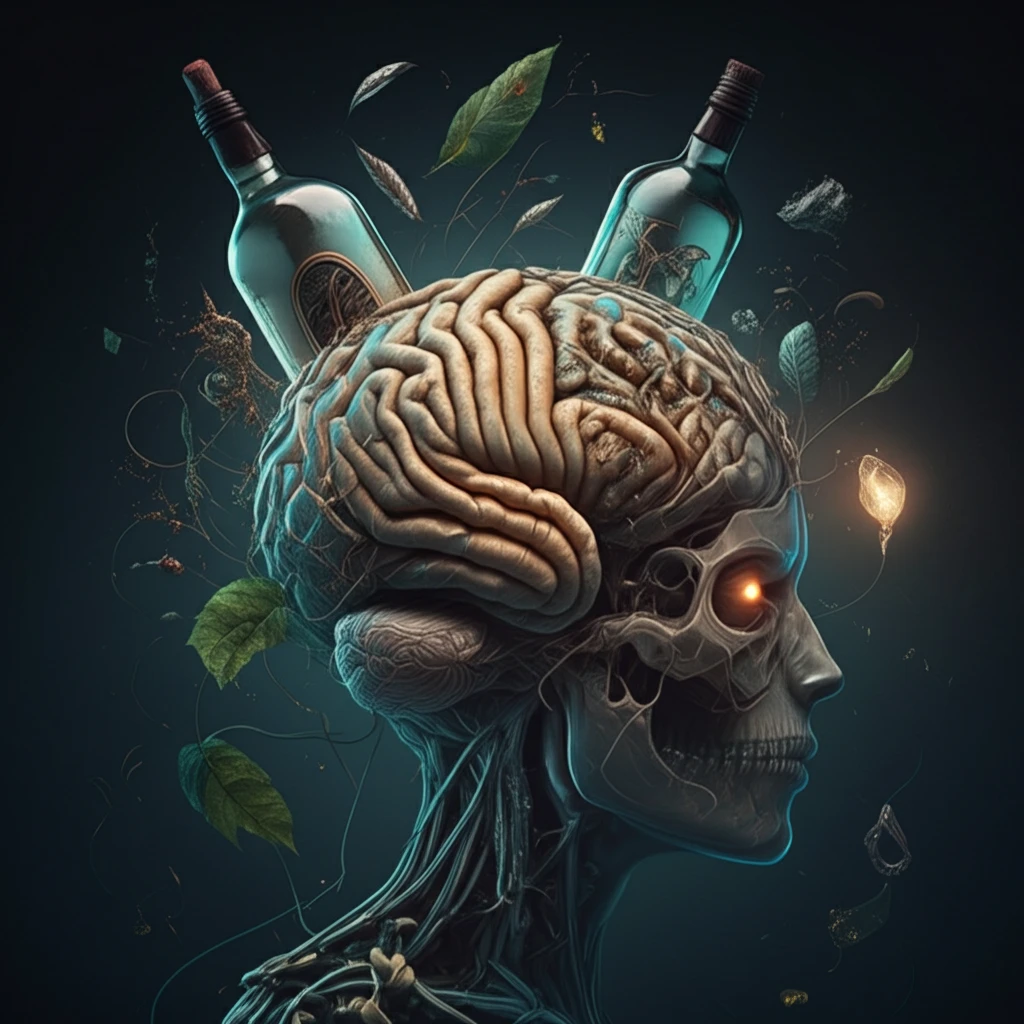
Weed and Alcohol: Unraveling the Impact on Adolescent Brains
"A deep dive into how combining cannabis and alcohol affects teenage ingestive behaviors, cognitive functions, and overall health"
The co-use of alcohol and marijuana is a prevalent and growing trend, particularly among adolescents and young adults. While both substances are often used recreationally, the combined effects on the developing brain remain largely unexplored. Understanding how these substances interact is crucial, especially given the unique vulnerabilities of the adolescent brain.
A new study investigates the combined effects of alcohol and Δ9-tetrahydrocannabinol (THC), the main psychoactive component of marijuana, on ingestive behaviors and cognitive functions in adolescent male rats. By examining how these substances interact, the research aims to shed light on the potential consequences of co-use during this critical developmental period.
This article breaks down the key findings of the study, translating complex research into accessible insights. From appetite and weight changes to impacts on memory and learning, we’ll explore the surprising ways alcohol and THC interact and what these findings could mean for adolescent health.
How Do Alcohol and THC Affect Appetite and Weight?

The study reveals that the route of THC administration—whether through injection or ingestion—significantly influences its effects. Subcutaneous THC injections increased short-term food intake but reduced overall weight gain. Interestingly, moderate alcohol consumption seemed to lessen the acute hyperphagic (overeating) effect of THC. Oral THC, on the other hand, robustly reduced alcohol intake without affecting short-term food consumption. At higher doses, some rats even stopped consuming THC-laced cookies.
- Subcutaneous THC increased short-term food intake and reduced weight gain.
- Moderate alcohol consumption reduced the hyperphagic effect of injected THC.
- Oral THC reduced alcohol intake, especially at higher doses.
- Alcohol alleviated the weight-reducing effect of oral THC.
Why Does This Research Matter?
This research provides critical insights into how alcohol and THC interact in the developing brain, underscoring the potential for unique and sometimes counterintuitive outcomes on ingestive behaviors and energy balance. By establishing a novel model for studying voluntary alcohol and THC consumption, this study paves the way for deeper investigations into the mechanisms underlying adolescent substance use and its long-term consequences. Understanding these interactions is essential for informing public health strategies and interventions aimed at promoting adolescent health and well-being.
